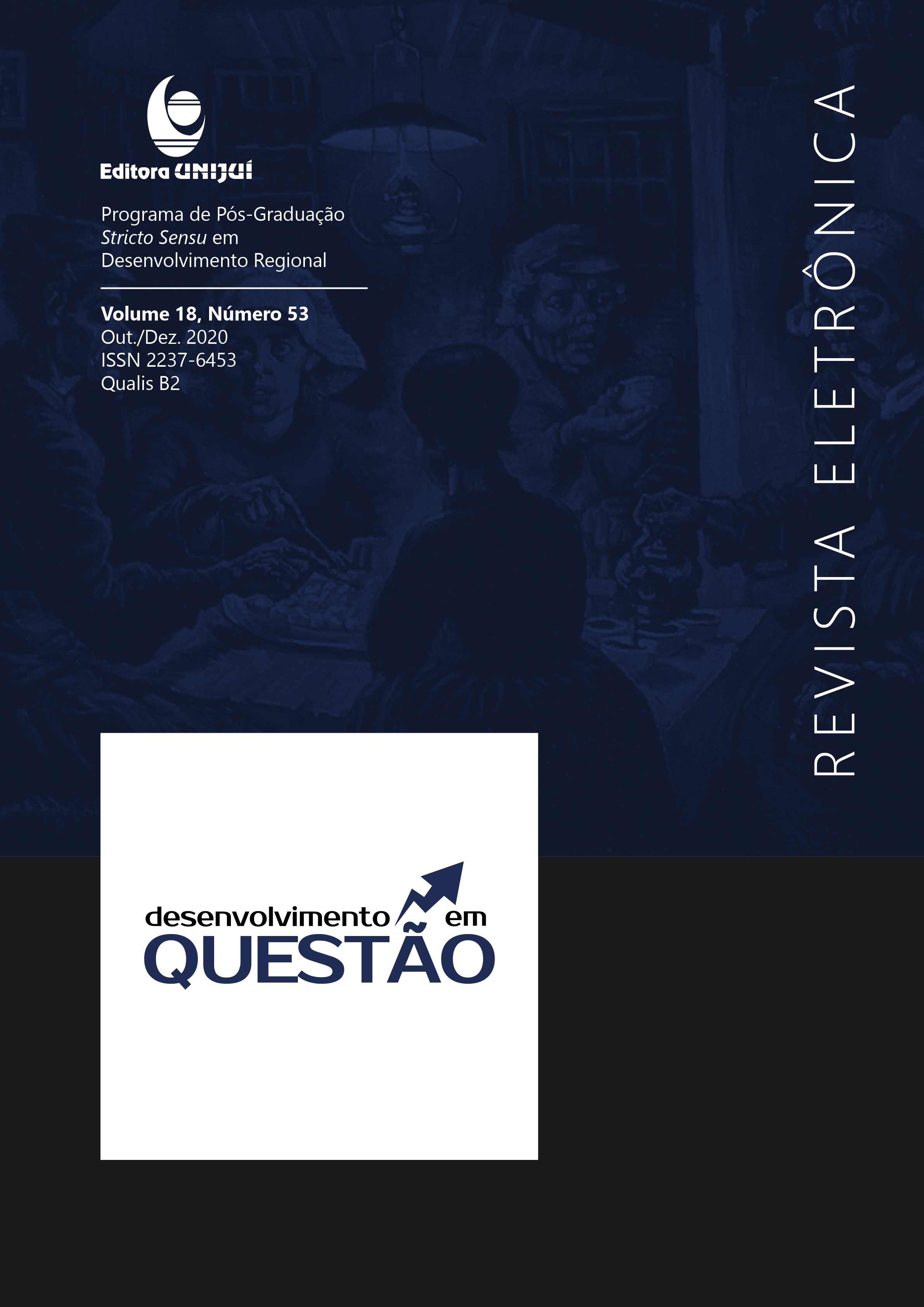Contribuição da Teoria da Dádiva para os Estudos Territoriais
DOI:
https://doi.org/10.21527/2237-6453.2020.53.72-90Palavras-chave:
Teoria da Dádiva, Desenvolvimento. Estudos Territoriais. Nova Sociologia Econômica.Resumo
Marcel Mauss é o grande idealizador da teoria da dádiva, que permite, dentre outras viabilidades, analisar como a troca e o simbolismo possibilitam a socialização e a comunicação entre os atores. Neste artigo, buscamos identificar sua contribuição, através da teoria da dádiva, para o desenvolvimento de novos estudos territoriais. Nosso objetivo, aqui, portanto, é conferir, à luz dessa teoria, como ocorrem as relações de troca e a presença do simbolismo nas feiras livres na fronteira Brasil-Bolívia, mediante um trabalho qualitativo e sob um enfoque etnográfico. Paralelamente, discutimos a contribuição da Sociologia Econômica e da Nova Sociologia Econômica para os estudos urbanos, sustentáveis e regionais pelo aporte da corrente francófona do ‘dom’. A partir de uma construção teórico-empírica aplicada a uma análise de caso é possível afirmar que a teoria da dádiva permite reconhecer diversos fenômenos sociais presentes no território, com ênfase no ator, e como isto é importante para o desenvolvimento da região. Permitiu, também, perceber a importância de se estudar os mercados sob o angulo econômico, sociológico, histórico, ou seja, como construções sociais, pois, no caso das feiras, foram identificados alguns símbolos trocados, o que viabilizou criar um olhar para além do utilitarismo e compreender como ocorre a dinâmica de desenvolvimento do território e a existência e a manutenção das feiras.
Downloads
Publicado
Como Citar
Edição
Seção
Licença
Ao publicar na Revista Desenvolvimento em Questão, os autores concordam com os seguintes termos:
Os trabalhos seguem a licença Creative Commons Atribuição 4.0 Internacional (CC BY 4.0), que permite:
Compartilhar — copiar e redistribuir o material em qualquer meio ou formato;
Adaptar — remixar, transformar e criar a partir do material para qualquer fim, inclusive comercial.
Essas permissões são irrevogáveis, desde que respeitados os seguintes termos:
Atribuição — Atribuição — os autores devem ser devidamente creditados, com link para a licença e indicação de eventuais alterações realizadas.
Sem restrições adicionais — não podem ser aplicadas condições legais ou tecnológicas que restrinjam o uso permitido pela licença.
Avisos:
A licença não se aplica a elementos em domínio público ou cobertos por exceções legais.
A licença não garante todos os direitos necessários para usos específicos (ex.: direitos de imagem, privacidade ou morais).
A revista não se responsabiliza pelas opiniões expressas nos artigos, que são de exclusiva responsabilidade dos autores. O Editor, com o apoio do Comitê Editorial, reserva-se o direito de sugerir ou solicitar modificações quando necessário.
Somente serão aceitos artigos científicos originais, com resultados de pesquisas de interesse que não tenham sido publicados nem submetidos simultaneamente a outro periódico com o mesmo objetivo.
A menção a marcas comerciais ou produtos específicos destina-se apenas à identificação, sem qualquer vínculo promocional por parte dos autores ou da revista.
Contrato de Licença (para artigos publicados a partir de 2025): Os autores mantêm os direitos autorais sobre seu artigo, e concedem a Revista Desenvolvimento em Questão o direito de primeira publicação.











